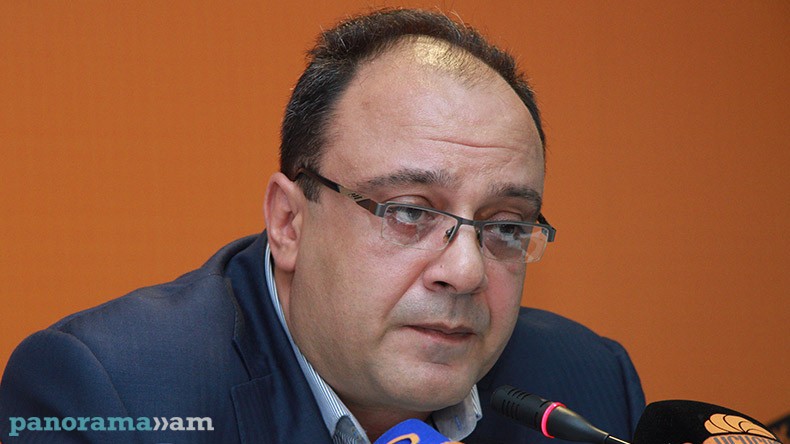
Karen Bekaryan: Anti-Armenian draft resolutions in PACE were prepared in unnatural conditions
The two anti-Armenian draft resolutions put to vote in the PACE yesterday, on January 26, had been prepared in rather unnatural, abnormal conditions, and both reports were one-sided, Chairman of European Integration NGO, Armenian MP Karen Bekaryan told reporters today.
As was reported, the Parliamentary Assembly of the Council of Europe on January 26 voted on two reports: “Inhabitants of frontier regions of Azerbaijan are deliberately deprived of water” – a scandalous report prepared by Milica Markovic, MP from Bosnia and Herzegovina - was adopted by 98 votes to 71, with 40 abstentions. Another controversial report that drew a wide response - “Escalation of violence in Nagorno-Karabakh and the other occupied territories of Azerbaijan” prepared by British MP Robert Walter who holds Turkish citizenship was rejected in a 66-77 vote.
According to Bekaryan, first of all, it was unnatural of the report authors not to visit the country discussed in the report – the Nagorno Karabakh Republic. Besides, residents of that country did not take part in the preparation of those reports.
The expert said that it was previously practice for PACE to ensure – regardless of the country’s political recognition - the participation of groups related to the examined issue in the discussion, the matter concerns Kosovo and Northern Cyprus.
Bekaryan also indicated the fact that the Council of Europe and the PACE have no experience of a mediator in conflict resolution.
“It is unnatural that they go beyond the scope of their mission,” Bekaryan said, adding that there is an organization dealing with a settlement of the Karabakh conflict, namely the OSCE, so it is unnatural to try to help the process through related elements and phenomena.
In his words, good sense triumphed in case of Walter’s report, and its rejection is a striking example of that.
“Robert Walter’s report was not equal to the report of Milica Markovic in terms of its influence. It would be wrong to put the sign of equality between them,” Bekaryan said.
He reminded those present that PACE’s resolutions are non-binding, they are elements of a political background and reflect sentiment to some extent, but no more than that.
“It does not mean that we should ignore them, but the reports have little influence on the real policy and the decision making process,” he added.
Newsfeed
Videos






























